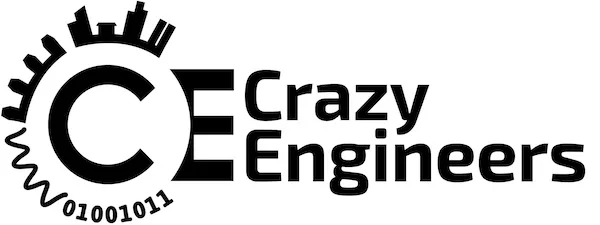"The essence of mathematics lies in its freedom."- Rudraksh MK, MathHarbor

MathHarbor is a cloud based platform that leverages the power of cloud computing to save the pain of numerical computing needs. Currently, MathHarbor supports the Octave, Scilab, R and Sage platforms. The courses cover various platforms like R, IPython, F#, Sympy, Octave etc.
MathHarbor is founded by a team of four - Rudraksh MK aka Rudi, Juhi Goyal, Vakul Arora and Vineesh Kumar. The product is useful for math students and professors as well as people from the scientific and research field.
In an exclusive interview with Rudraksh MK or Rudi we try to dig deeper into the MathHarbor, the team of MathHarbor, market competition, how Rudi got to be a co-founder, various challenges faced by MathHarbor and a lot more. Read on!

CE: Could you please tell our readers more about MathHarbor?
Rudi: Sure! At MathHarbor, we're building a hub for computational mathematics and statistics. That covers a lot of ground - our main focus right now, is on a cloud-based platform for numerical modeling - think AWS for math. The idea is to get a math student/professor/researcher/anybody going in for the ML course on Coursera, easily started. Software tools like MATLAB and Mathematica have extremely expensive licensing, and deploying open-source tools are a pain. Plus, of course, servers - if you're crunching heavy models, you need greater computing power. We got clouds for just about everything else - why not a cloud for math? Plus, we're working on a set of very specialized video courses on using tools like Octave, Sage, Numpy, Scipy, Sympy, as well as languages like R, Julia, Haskell and F#, for modeling real-world scenarios.
CE: How did the team (Juhi Goel, Vineesh Kumar, Vakul Arora and you) come together?
Rudi: That's a very long story! Vakul and I go back a long time - we met at IBM. Back in December 2012, while I was a part of my first startup, I came across a book on modeling combat scenarios using differential equations. I was using a really old Sony Vaio, and I needed more computing power to run some of those models. There was no SaaS that I could use, so I quickly built a prototype up for myself. Once I was done with the book, Vakul and I figured it might be something other math nerds would like. And that's how it started.
In April 2013, we had to stop work on MH. Big-time financial crunch, and we just didn't have any money to pay for cloud servers, or our own bills, or even buy decent laptops for dev. So we decided to take a break. I started work at 91springboard, handling events, sponsorships as well as managing the coworking space. Vakul decided to consult for other startups, and that's how he met Vineesh, who was building up his own EdTech product. Vineesh loved MH. And he helped us out in many, many ways - which included funding to buy decent hardware and get things started, and his experience in working with educational entities.
Later, we met Juhi, who was also running her own venture on the side. She loved MH, and decided to hop onboard.
CE: You have previously worked as a Freelance Developer. You have also worked for companies like IBM, Cvent, Benchmark Internet Group and Hindustan Times. What made you take the plunge to quit your job and become an entrepreneur?
Rudi: The traditional definition of an entrepreneur is someone who takes risks for profit. "Profit" is the keyword here - it's the motive. Which isn't bad - no, far from it.
Sure, at MH, we'd like to get rich too - who doesn't? But when I quit HT to join my friends at Subtle Disruption, profit was far from my mind. I was tired of working at companies where my contribution would either never be appreciated, or it'd be too small to matter. And I was tired of working for bosses who just didn't know how to utilize me. At the risk of sounding extremely boastful - I happen to be a linguist as well. And at all the companies I've worked at, there were ample opportunities for my skills to be used. But no. The corporate world is quite rigid in that respect.
However, I digress. I loved Subtle Disruption. I didn't even think twice before quitting HT. I loved MH. I knew it would add value - sure, to a very, very niche market - but it would add value, nevertheless.
I guess it's our love for what we do that pushes us, and not dreams of a rosy, profitable exit - and I use "exit" here in the broadest terms.
CE: How is MathHarbor different from its competitors like Coursera?
Rudi: Quite different - I'm not even sure we count as competition to them! Coursera's courses are run by professors and researchers from some of the best universities in the US and Europe. But let's go deeper - take the machine learning course. Courses on Coursera are broader in many ways. Our courses are going to be tailored to specific scenarios - for instance, one course that I'm planning on, is on using Python for analyzing geological formations on seabeds. Or using Haskell for probabilistic programming. That sort of thing. The idea is that our cloud platform and courses are two sides of the sword - if you're doing a course, you need a platform to get started with modeling quickly. And if you're using the platform, then the courses help you explore the role computational math plays in just about every scientific discipline out there. And of course, it's MathHarbor - we're just into math. It's a bit narrow..but what can we do? We love math!
CE: How big is the market that you are targeting? What are the various courses offered by you?
Rudi: To be honest, it doesn't look all that big - at first. A lot of studies have shown that enrollment in math-based courses in India is falling. Not sharply, but enough to worry about. After all, if you don't have enough mathematicians, what's the world coming to? However, that's not the case everywhere - in fact, in the US, STEM enrollment is rising slowly. And MathHarbor is the kind of platform anyone can use anywhere, regardless of educational affliation. We're looking at a historian using our platform to analyze migration statistics in the Middle East from the First World War till now. And I guess that's pretty awesome - it shows that given a chance, our market's pretty huge. At the end of the day, MathHarbor is out there for anyone, who needs to crunch a model, and we're surprised ourselves, that there are so many areas where our platform can be used.
CE: How difficult is it to manage funds for any startup? How did MathHarbor manage the financial challenges? Have you received any funding?
Rudi: Very, very difficult. That's when you have funds. Of course, the good news is, when you don't have funds, there's nothing to manage! That was pretty much the case for most of MathHarbor's existence. Even the act of buying a can of Coke sets off a train of thought, culminating in a decision on whether buying the can is a good idea or not! But that's a stage just about every startup goes through. It gets better. And I guess, such phases bring out the best in us. You figure out how to go lean when it comes to money.
"Oh, so taking an auto to that meeting's gonna cost 50 bucks? I'll walk."
Things were like that at one point of time. Now, things are pretty different. We are a part of the Morpheus, and they have invested in us. And we're pretty certain that when we go ahead and monetize our platform in a month or so, revenues shall pour in.
CE: You code in different languages like Python, Ruby, Javascript and F#. How has your educational background in Computer Science helped you?
Rudi: Okay, at the risk of sounding extremely disparaging about engineering schools in India - engineering school didn't help me one bit. The only courses where I really learnt something new, were American History and Art Appreciation. Otherwise, my CS courses were about outdated languages, outdated technologies. Engineering school was a huge waste of time and money, which led me to drop out after two years. I learnt F# in grade 12, when it was first released. I learnt Python in a week when I joined HT. Vakul taught me the basics of Ruby. And Javascript, I learnt it myself. So to answer your question -
me going in for CS at engineering school didn't help me one bit.
CE: Your tag line says "The essence of mathematics lies in its freedom". How has MathHarbor helped individuals achieve this?
Rudi: Well, that's not really our tag line - just a quote on our site. But now that you mention it, it does make a lot of sense. Think about it - you're a mathematician, you've decided to start working with symbolic algebra. Why go through the hassle of licensing, or setting up your own server, compiling code to get a working environment? MathHarbor frees you up from that grunge. No licensing fees - it's all open-source. You just end up paying nominal charges for the computing power you use up. You don't have to compile or install anything - we got it all covered. And these are secure sandboxes, so no one, not even us, has access to your models. Plus, you get to easily share your models with colleagues. I reckon that's a lot of freedom right there!
CE: Thank you for your time. Any message for CrazyEngineers?
Rudi: Thanks for the opportunity! Well..I'll say this.
Don't start up if you're in for a quick exit. That's not a bad thing, but trust me, at the end of the day, when you are broke, and nothing seems to be working out, it's the support of your family, the bond between you and your co-founders, and most importantly, your passion for what you're out to do, that will keep you going. You're crazy engineers - go out there and make the world go crazy!
